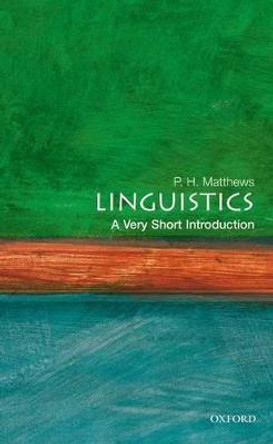This concise history of structural linguistics charts its development from the 1870s to the present day. It explains what structuralism was and why its ideas are still central today. For structuralists a language is a self-contained and tightly organised system whose history is of changes from one state of the system to another. This idea has its origin in the nineteenth century and was developed in the twentieth by Saussure and his followers, including the school of Bloomfield in the United States. Through the work of Chomsky, especially, it is still very influential. Matthews examines the beginnings of structuralism and analyses the vital role played in it by the study of sound systems and the problems of how systems change. He discusses theories of the overall structure of a language, the 'Chomskyan revolution' in the 1950s, and the structuralist theories of meaning.
A concise historical survey of structural lingustics, charting its development from the 1870s to the 1990s.About the Authorfm.author_biographical_note1
Reviews"Matthews's survey has a clarity and conciseness that is rare in works on liguistics, and it is carefully argued and well organized...Bound to become the standard resource on the subject." CHOICE Nov 2001
Book InformationISBN 9780521625685
Author Peter MatthewsFormat Paperback
Page Count 174
Imprint Cambridge University PressPublisher Cambridge University Press
Weight(grams) 240g
Dimensions(mm) 229mm * 152mm * 9mm








